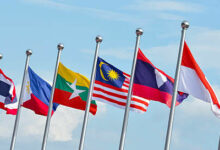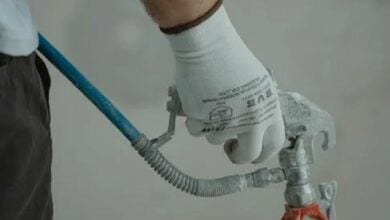Modern masculinity in Africa: Pressures, expectations and breaking the mold

What does it mean to be an African man in the 21st century? What kind of pressures are men under? And how do we even define masculinity in the modern world?
These were just some of the questions put to the panel in the latest edition of The 77 Percent’s Street Debate in Nairobi, Kenya.
Conversations around masculinity and manhood are not unique to the African continent. But many African societies are now navigating an often stark clash between traditional and modern values.
“A majority of us come from a background of being brought up in a patriarchal society,” said Charles Okumu, the facilitator of the Man Enough program in Kenya, which seeks to redefine traditional roles and traits of masculinity.
“There was a way that we were expected to behave, or how we saw our fathers treat our mothers.”
Tradition meets modernity
In many African societies — especially in rural communities — traditions still play an important role in everyday life. Men and boys are often raised to view the ‘man’ as the dominant force and provider in the household amid shifting societal norms.
In fast-growing cities like Nairobi, the demands of keeping up with modern values in the face of persistent ideas on what makes a man a man is even harder to navigate.
“Some of our patriarchal ways that we borrowed from our background are not really helpful to modern life,” explained Okumu. “There are still some who want to behave in the way our fathers behave. But on the other side, modernity has taught us a better way of how to handle ourselves.”
Kenyan influencer, radio host and comedian Eric Omondi has seen a big evolution in Kenyan society in compared to a few decades ago.
“While roles were clearly defined then — i.e. the man bringing home the bacon and the woman cooking it — they’re not anymore,” Omondi told DW.
Juggling expectations
As modern and traditional values collide, African men, especially the younger generation, can find it difficult to live up to expectations on both sides.
“There is a struggle that comes from within,” said Okumu. “Wanting to do things that are morally right in the modern way of doing things. … But there is that inwards struggle of still not wanting to let go of how we saw our fathers show us the way.”
Many men also still feel the pressure from their families to meet these masculine ‘ideals.’
“Expectations are vast and [often] unrealistic,” said Omondi. “From his parents’ requirements that he pays it forward with his younger siblings and his aging parents — aka the Black Tax — to his wife or girlfriend’s need for a new hairdo, facial and a house on a hill [while] being emotionally present and sensitive to all her feelings. The list goes on and on.”
Okumu believes young boys have also been left behind when it comes to education, albeit unintentionally.
“In the last decade or so, there has been an emphasis on the education and empowerment of the girl child — which I am fully supportive of,” said Okumu.
“However, that happened at the expense of the boy child and now those boys and girls have grown up. Those girls are now more informed, they make more informed choices and make more money. So now, the struggle is how should a man provide leadership to a much more informed [woman]?”
Mental health in focus
This discussion on masculinity also shines a spotlight on the importance of mental health among African men — an issue which for remains difficult to discuss openly.
“There’s the implied need by most African societies for men to ‘man-up’ — so that all emotions a man feels shouldn’t be openly or even privately expressed,” said comedian and influencer Eric Omondi.
“Because of this, many of [men’s] challenges are swept under the carpet and are rarely spoken about”
Omondi cities infertility, domestic abuse and financial abuse as just some of the many issues facing African men that they are reluctant to discuss, even among their family or closest friends.
If these problems aren’t addressed, they can lead to higher rates of gender-based violence, depression and suicide among men, Omondi stressed.
According to the World Health Organization (WHO), suicide rates across Africa are higher than the global average. Stress among men was compounded even further during the COVID-19 pandemic, with job loss and isolation taking their toll.
But more African men are speaking out about the pressures they are under.
Resources like Okumu’s Man Enough program encourages participants to move beyond traditional gender roles.
Okumu also highlighted the importance of providing boys with good role models at an early age.
“Boys become the men they see around them,” he told DW during the Street Debate.
“We have to make a deliberate choice to talk to our kids, not because of the way we feel that [this or that] defines masculinity but helping them to realize how to just be a responsible person.”
As for comedian Omondi, he thinks African men today can benefit from borrowing values from other cultures while also staying true to their roots.
“Since the world has now become a village, it’s not far-fetched to reach for a little bit of what works from Western or Eastern cultures and fuse it with our very rich African culture as modern men,” Omondi said.
If you are struggling with your mental health or experiencing suicidal thoughts, do not hesitate to seek help. You can find mental health services resources in your part of the world here: https://www.befrienders.org/
SOURCE: DW News
Join the conversation and have your say on Thailand news published on The Thaiger.
Thaiger Talk is our new Thaiger Community where you can join the discussion on everything happening in Thailand right now.
Please note that articles are not posted to the forum instantly and can take up to 20 min before being visible. Click for more information and the Thaiger Talk Guidelines.









